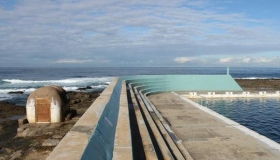
10 Years, 2000 Shows, a Million kms, 6 Records: Time For A Break
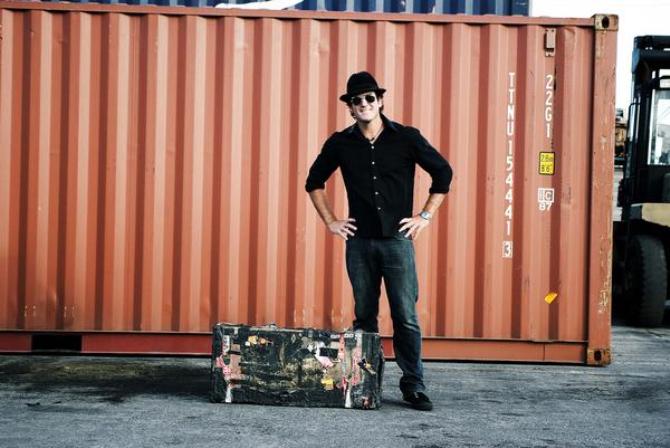
From Olympian to respected Australian musician, singer-songwriter Paul Greene caught up with me ahead of his 3-night stand at the Lizottes venues to mark the end of a decade of solid touring. 10 years, 2000 shows, a million kilometres and six records since the 1st in 2001, Greene knows the road and has built up a vast following both locally and abroad. You can see him perform at Lizottes Newcastle on Friday, 25 February with his band The Other Colours.
What really came across from chatting to Paul is his passion for the Australian music industry, whether he’s talking about the perks & perils of getting from one gig to the next or in his new role behind the sound desk.
You’re coming off a 10 year stint on the road, tell me what you love most about touring.
Firstly I’m in love with the country itself. I’ve gotten to see parts of Australia that not many people get the opportunity to see. More than just seeing the places, when you go in as a musician it’s all about interacting with people – either on stage or even just talking to people in the community who are passionate about music. So I feel that’s been an absolute blessing.
Secondly, I think it’s really important that Australia is proud of its own music. I guess what I wanted when I started was to show people that you don’t necessarily have to be famous, firstly, to do it – to get out there and play music – and secondly, for it to be accepted by people. I think it’s really important that people can take their own music, music from their own area or community, seriously. I’m from the South coast of NSW but part of my goal from the start was to get out there and make up songs and take them to places at a time when people didn’t do that as much. I felt when I grew up that if I got up and played by own songs that people would laugh at me. If I was famous they wouldn’t, but you don’t have to be famous to make up songs.
If I could leave one message behind in my lifetime, it’s important that people are proud of the musicians who are part of their community and culture. I’ve seen this in a lot of other parts of the world, but not so much in Australia, but I think that’s changing and that’s something I’m really proud of.
What are the downfalls of such a hectic touring schedule?
I’ve got a 6 year old daughter, a 2 year old daughter and wife, and I think I’m very lucky that they’re all still speaking to me because I have spent a lot of time away from home. A big part of this year off is about spending time with my family. Also, being on the road takes its toll. I can’t do anything else other than get to the next spot and do the next gig. It really does drain all your energy.
I’ve found that I need some time to stop and have some time to think about the business side of things, which I hate doing, but times are changing really quickly and I can’t be out there doing 200 gigs a year for the next 10 years, I need to look at changing the way I do things.
Even in this year off it seems like you still have big plans?
These Lizottes show are probably my last for the year, I might do one on my birthday, which is a bit of a tradition. I’m actually finding that now that I’m not touring, I’m doing more producing albums for other people. I’ve just recorded an album for James Blundell. I’ve been producing and engineering and putting what I’ve learnt through make the albums that I’ve made and applying to other people’s albums and really enjoying it. I’m also working on getting my record label developed so that I can release other acts through it and help people set up their own touring and make their own records. 10 years of making my own mistakes, I’ve learnt a lot from it. The goal though for this year is to do a lot more fishing, and spend lots of time at home.
You have a unique claim to fame or a musician - you were also an Olympian. How did you transition from athlete to musician in the 5 years between Atlanta and the release of your first album?
I’ve always supported myself doing gigs, even when I was running full time I used to play. For a while I was training in the United States and I also studied music and played in bands over there. That was always what I was doing if I wasn’t training or competing. Then I moved back to Australia to train for the ’96 Olympics in Perth, and did 3 gigs every week. I couldn’t hold down a 9 – 5 job because I was training in the middle of the day and would be away 3 – 6 months of the year. I would take my guitar and I’d find a café and I’d busk or do gigs and that’s how I fed myself for most of that time. All that happened when I made the change was that I stopped training and wearing shiny Lycra. I didn’t just become a musician, I’d been playing in bands since I was 12 years old.
I didn’t get paid a cent for running, it was totally my hobby. I just knew that I’d have a limited time that I could put my heart and soul into track and field to see what I was capable of doing. To represent at the Olympics was a goal because my father was an athlete, my grandfather was an athlete and it’d been a career aspiration for them to go the Olympics but they didn’t have the opportunity. I felt my grandparents and my parents had gotten me to a point where I did have the opportunity and so I put my study and career aside and put my heart and soul into athletics. But, it got to a point and I couldn’t do it anymore because my heart and soul wanted to be in music, so I let that happen and haven’t looked back. 10 years later I’m still at it.
Are there similarities between your approach to athletics and your approach to music?
Yes & no. The difference is I really had to focus to have the mindset to train for athletics. I felt I always had to bend myself out of shape to be an athlete. With music, it just feels like my natural state, I don’t have to change myself to be a musician.
In both areas, I did find was that it’s easy to lose faith in yourself, but being able to know that it doesn’t matter if you have a bad race or a bad gig, it doesn’t make you a worse person was really important. I think that you’ve just got to stick to your guns, keep your faith and hope that what you’re doing is worthwhile and meaningful. You’re only as good as your next gig or your next race – you just have to keep the love for it there I guess is the thing. If the love’s not there, then there’s no point. You have to remember why it’s important to you and why you love it and that keeps you going when it’s not going so great for you. One of my mottos, I’ve got a lot of mottos, is that it’s not the good gigs that make you good, it’s getting through the bad ones. Playing to an empty pub is just as important as playing to 5000 people at the State Theatre, and I’ve done both, one day after the other. Musically, I think you have to love both of those things.
You’ve worked with some great Australian musicians, including Rob Hirst of Midnight Oil. What was it like to work with someone with such a strong presence and who was part of something so iconic in Australia?
I’m a massive Midnight Oil fan, I went and saw them at the Hordern Pavillion when I finished high school. Rob is really the reason that I’m doing this. I actually got the opportunity to work with him through athletics. They were doing an album called ‘Olympic Record’ and looking for athletes that could sing. I put my hand up and after the second time I met Rob he asked me to come and play in the Ghostwriters, one of his projects, and then he was working on a Ghostwriters album which turned out to be just the two of us, called Hirst & Greene. It was a real life changing moment to have one of my heroes tell me that I could pursue a career as a songwriter if I chose to. For someone like Rob to come and be interested in my work and wanting to co-write with me was a real surprise. I guess it was the shot in the arm to get me to take the leap of faith (too many clichés in one sentence.. but it’s not a song so it’s ok).
It sounds like it was the start of something that’s been very successful over the last 10 years, one of those right place and right time to put up your hand and give it a go…
It’s funny to think you know that all the time I spent doing athletics seemed like a complete waste of time, there was a time that I was almost resentful about the energy that I had poured into it and how much of my life I devoted to it. I felt like when I finished running that I was left way behind, but if it weren’t for the athletics then I probably wouldn’t have had the opportunities that I have had. I remember thinking when I was a kid starting out at athletics that my goal was to have an Olympic record, and it’s funny how that first album I worked on with Rob was called Olympic Record… you’ve got to be very careful what you wish for.
What are you listening to right now?
A UK band called Fink. I’ve got an album called Distance Over Time, which I put out in 2008, and they’ve got an album called Distance & Time that they put out in 2009. They’re brilliant, they kind of fuse dub and acoustic singer-songwriter stuff. I really love the lyrics. There’s another band called Elbow, who are probably one of my favourite bands, and they have great songwriting and has really modern and textural sound, which I’m really interested in. Fusing two influences from electronic music into roots music. I’m also really inspired by Wilco. Production is something I’m really interested in at the moment. I’m interested in capturing people’s raw energy. I find that some of the stuff I’m hearing at the moment sounds like it’s had the life sucked out of it. I want to go back to an old school tape style of recording where you play the song and get it as good as you can, but that perfection is not the goal. It’s more about getting the soul and getting the spirit of the artist captured in the recording. That was my approach to James Blundell’s album. He’s a really intelligent guy and a great songwriter, so my goal was to steer away from country music and show that he can write a really good song and tell a good story. I also like the modern ‘ear candy’ thing, where it takes influences from really commercial music and it just feels good in your ears, but combined with the old Rolling Stones style of being a bit loose and messy. The thing I love about old Beatles records is that you can listen to them 100 times and keep hearing new things. There’s always lots of detail under the song – you don’t get bored, you keep coming back to it. You feel like the artist is letting you in, and not being so guarded and they’re sharing that with you. I tried to do that on my last record, I wanted it to be like an old car that’s using a stocking as a fan belt, rather than a new slick Hyundai. An old car, for all its idiosyncrasies, has a lot more character. I’ve got a 94 Coaster that I converted into a tour bus, people staring at it when I’m driving around people can see right into my house – things hanging on the walls, candles. It gets quite a few strange looks driving aroung the CBD.
What is your favourite festival to perform at?
I like Woodford Folk Festival because the whole event is cultural and a great celebration what it is to be Australian. It just has a lovely approach to not just music, but life – the whole festival is about life. I tend to connect more with the community festivals, just set up to raise money, like the Gympie Muster. Apollo Bay springs to mind because it was almost entirely independent artists, it was all people who are out there doing the hard yards and weren’t famous but from years of touring have gotten really good at what they do. One of things I’m doing in my year off is organising a festival in my home town, and very much taking that approach of getting touring musicians together to promote the local community. I live in a little holiday town which is busy during Summer, but it’s a long cold Winter and local businesses struggle and there’s a lot of unemployment. The idea is to promote the area and get people coming to town to celebrate the place and getting local musicians to be part of it. It can only help the local community, getting everyone together. It’s great that music is still such a powerful social tool, and that the world is not being run by TV. I’m always dubious of controlled media.
Do you have any plans for when you’re in Newcastle?
I’m not going to be there all that long, but I’ll definitely be going for a surf. Newcastle and Wollongong are the 2 cities that are right on the water – you can step out of metropolis and into the surf. I love Lizottes too, it’s such a great venue – such a good way to see music, have a nice meal and a nice wine and see some good music, it’s the way to go.
You can catch Paul Greene (and congratulate him on the big 1-0!) on Friday, 25 February at Lizottes Newcastle. If you can’t make it, you might like to check out Thursday, 24 February at Lizottes Kincumber. Special guest for both shows will be Sydney folk roots act Dave Calandra. Here’s some more info and tickets.
Congratulations to Katherine Blackwell, the WINNER of a double pass to Paul Greene’s Lizottes Newcastle show.



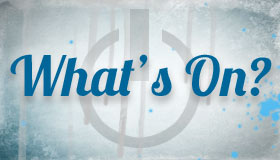
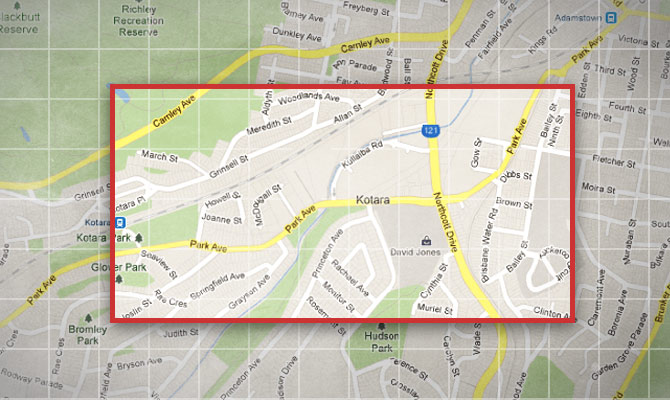
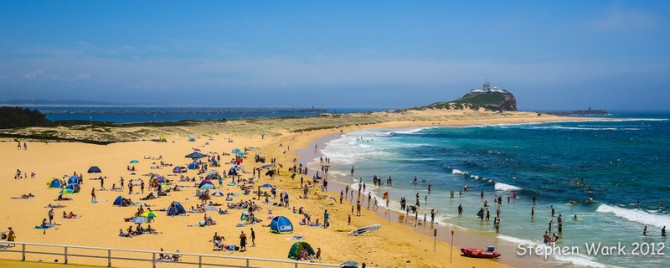
Leave a comment
No comments
Trackbacks